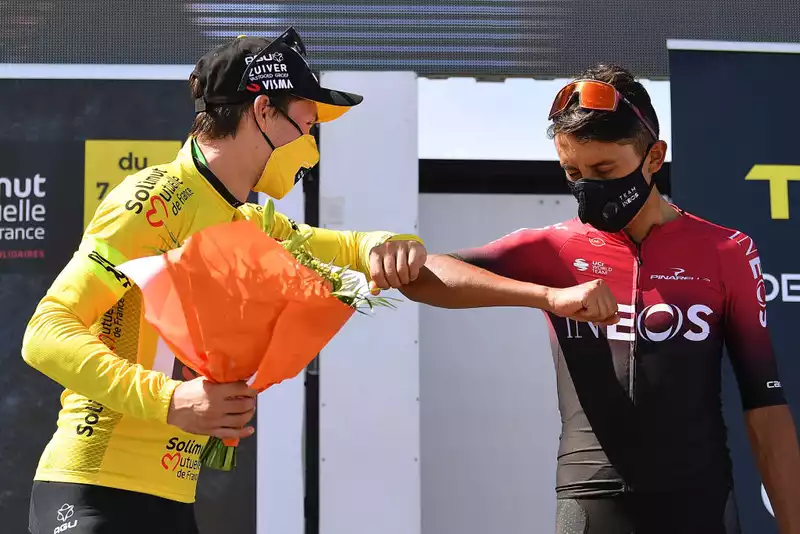With the start of the 2022 racing season just days away, the UCI is preparing to impose strict rules to reduce the risk of COVID-19. Hopes of a more "normal" season with the advent of effective vaccinations have been dashed as the more infectious Omicron strain has caused a sharp increase in cases across Europe.
The UCI has updated the rules that were imposed before the vaccine became widely available, and as long as infection rates remain high, riders are expected to be separated at the podium, wear masks and their own leader jerseys.
This measure will apply to most UCI sanctioned road race events, with local regulations, if any, being the more stringent of the two.
In other words, riders must comply with a measure passed by the French parliament on Monday requiring vaccination at races in the country. The season kicks off on January 30 with the Grand Prix Cicliste de Marseille la Marseillaise. [Only vaccinated visitors may participate in the Tour of Saudi Arabia, which will be held February 1-5. The race will run from February 20-26.
The UCI regulations reopen all "non-pharmacological" measures against COVID-19 in 2020. These include the wearing of masks, disinfection of facilities, and mandatory PCR testing.
The federation hopes to roll out a "UCI Health Pass" to convince teams with low vaccination rates to get everyone vaccinated; in December, the UCI announced that 97% of women's world team members, 86% of professional team members, and 79% have been vaccinated.
Riders will get a Health Pass within one to four weeks of receiving a full course of any of the vaccinations approved in Europe: Pfizer's Comirnaty, Moderna's Spikevax, Johnson & Johnson/Janssen, AstraZeneca's Vaxseveria, Novovax's Nuvaxovid, or one week after PCR confirmed COVID-19 infection.
The regulations do not absolutely mandate vaccination. If a rider proves negative by PCR testing within 48 hours of participating in a race, a health pass will be issued, but the rider must be retested every 10 days. In the Grand Tour, the athlete must present a negative test result prior to arrival, regardless of whether or not he or she has been vaccinated.
Fortunately for the athletes, the UCI has indicated that saliva sample collection is acceptable.
Fines for not following the rules range from 1,000 to 10,000 Swiss francs.
According to Het Laatste Nieuws, Belgian riders and teams are complying with this requirement. Jumbo Visma spokesman Ard Behrens told the magazine that everyone scheduled to participate in the French race has already met the requirement.
Toon Kruyt, Quick Step Alphavinir's team doctor, said that the team "rushed in the last few months to vaccinate all riders and staff for the second time for the Classic campaign."
Quick Step's Classic athletes will not be vaccinated until after that block of races.
Greg Van Avermaat also reportedly will wait to get his booster shot until after the Classic, but he revealed that he received COVID-19 in November and both shots in May of the previous year.
"If I hadn't gotten sick, I would have already had the booster," the AG2R Citroen rider said. 'I'm all for getting vaccinated. I don't want people to think I'm like Djokovic," he said, citing Novak Djokovic, a professional tennis player who was deported from Australia for violating immigration rules requiring vaccination or proof of natural immunity.
Most teams have good vaccination rates, but the UCI said there is wide variation among teams. A survey of teams conducted in October-November 2021 found that some teams had as low as 40 percent vaccination coverage.
However, most teams should meet the requirements; three-quarters of the teams had more than 80 percent of their members vaccinated.
.

Comments